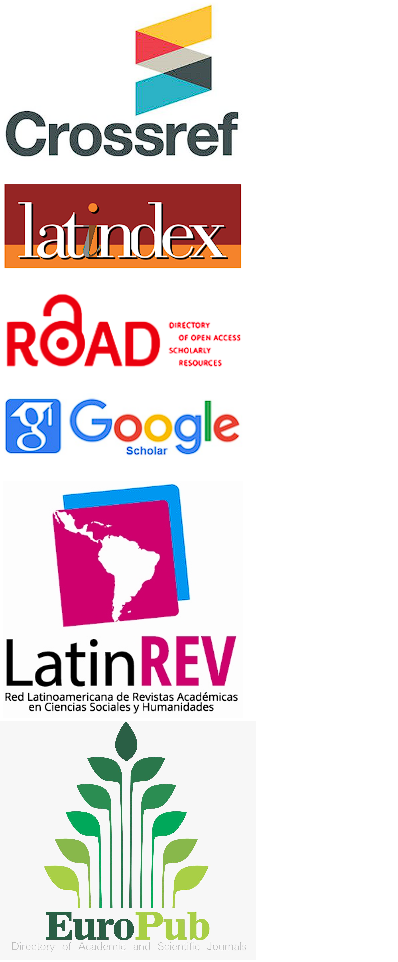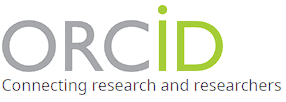About the Journal
CISA journal is a scientific popular journal, multidisciplinary, indexed, and open access journal with biannual publication in Spanish and English.
CISA journal is edited and published by the University Tecnocientífica del Pacífico S. C. Founded in 2021.
Since CISA journal is an open-access site, it provides researchers, teachers, students, and the general public, from all over the world, an opportunity to publish their papers, as long as they fulfill the journal established requirements.
Continuous Publication
CISA Journal has a Continuous Publication System in order to reduce the time of the editorial process between reception and the publication, getting rid of the waiting period between acceptation and publication.
The accepted research articles will be edited and published, without waiting the publication date of the next journal number.
This does not affect the amount of volumes published per year of this journal, and the publication of the volumes will still be biannual.
Rejection policy for articles with three months of inactivity
Articles that have three months of inactivity on the journal's platform by the authors will be rejected due to inactivity and removed from the journal's platform.
You will be notified via email and the letter will be sent with the opinion "Not publishable due to inactivity."
.
Double-blind peer review process policy
Al papers submitted will be under an editing process in two stages
The first stage is a preliminary evaluation carried out by the editorial committee. It consists of a format review based on the characteristics required for scientific articles redaction, found in the authors’ guideline section. Accepted articles will then go on to the second evaluation stage.
The second stage consists of a peer review process. The research paper distribution is made completely at random. Authors´ and arbitrators’ anonymity is always kept. Papers are evaluated on their content originality, topic relevance, and scientific impact, as well as on the scientific methodological aspects defined in the scientific paper writing format found in the author’s guidelines section.
Once a paper has been accepted, an acceptance letter will be sent to the author(s) where information about publication costs, volume, and number where the article will appear will be sent. In cases where the paper publication is determined as publishable with modifications, authors will be notified about the observations made as well as the datelines to complete and re-send the modified article. In case of the paper been rejected, the author will receive observations and will have the opportunity to modify it and send it again as a new article, which will go over the full evaluation publishing process again.
On publishing articles.
Articles will be published once the form and content evaluation process has been completed, and the double-blinded review has been approved as well.
The article publishing is made through an APC for $4,060.00 MXN per article.
The publishing of foreign articles is made through an APC for $250.00 USD per article.
Originality Review
CISA Journal has respect for the ethic codes and copyright. We reject plagiarism behaviors. In attention to this, the research articles received will be analyzed by software in order make an originality validation and detect the level of similarity with other published works. If the similarity in this analysis is superior to the 20%, the article will be returned to the author for modifications or rejection according to the case. The editorial committee reserves the total authority for rejection and cancelation the publication of any article once the verification or a plagium complaint is done.
CISA Journal uses Plagiarisma and Plagium softwares for this verification
Ethics and Good Practice Manual
CISA journal editorial and administrative staff’s ethics and good practice norms are designed and performed under the ethics and good practice norms manual referred by the Committee of Publishing Ethics (COPE) (available at https://publicationethics.org/core-practices) to guarantee the integrity of the publications made, and to provide the scientific community with high-quality publications.
Editor’s Ethics and Good Practices
- Comply with making decisions fairly without discrimination of the authors of any kind, such as gender, origin, political or religious beliefs, etc.
- Appropriately administer the platform by respecting times and editorial norms. At the same time, maintain communication with the author and reviewers, and assist with any doubts or contretemps.
- Maintain authors’ and arbitrators’ confidentiality during the double-blinded review process.
- Maintain open to any complaints of an ethical nature, and make convenient decisions in any particular case based on those described by the Ethics Committee for Publications (COPE).
- Take part and the opinion of the scientific committee when necessary.
Reviewers Ethics and Good Practices
- To perform article reviews objectively, by giving appropriate observations about the different article sections (abstract, introduction, methodology, results, conclusions, and references).
- Comply with the established timelines to carry out the reviews, as well as delivery and dictamen datelines. And to communicate with the editor in case of delays.
- Maintain confidentiality of the papers submitted.
- To inform the editor of any ethical inconsistencies detected during the article review.
- Be impartial, respectful, and neutral during article review
- Not to retain any submitted papers copy as it is a paper under a review process and it is third-party property.
Authors’ Ethics and Good Practices
- Provide article and authors´ correct and complete information in the journal platform at the time of registration.
- Confirm and assure that the submitted article is not under revision at any other magazine or editorial.
- Quote and correctly refer to the information contained in the paper to avoid unethical practices such as plagiarism.
- Confirm that the submitted paper is an original piece of work, of own authorship, and of each of those who participated in the making of it.
- Inform the editor of any conflict of interests that the author may have about his / her article.
- Notify the editor if any error or unconformity that results during the editorial process o the publication of the article by presenting clear arguments regarding such unconformity.
Reports of editorial misconduct
To prevent the publication of articles that incur editorial misconduct (plagiarism, manipulation of citations, data fabrication, etc.), the editors will take measures on these articles based on what is described by the Ethics Committee for Publications as required. the particular case (during the editorial process, after the editorial process, after publication).
You can check the process to follow for each case at the following link: Editorial office process on misconduct.
Committee of Publishing Ethics (COPE) https://publicationethics.org/core-practices






